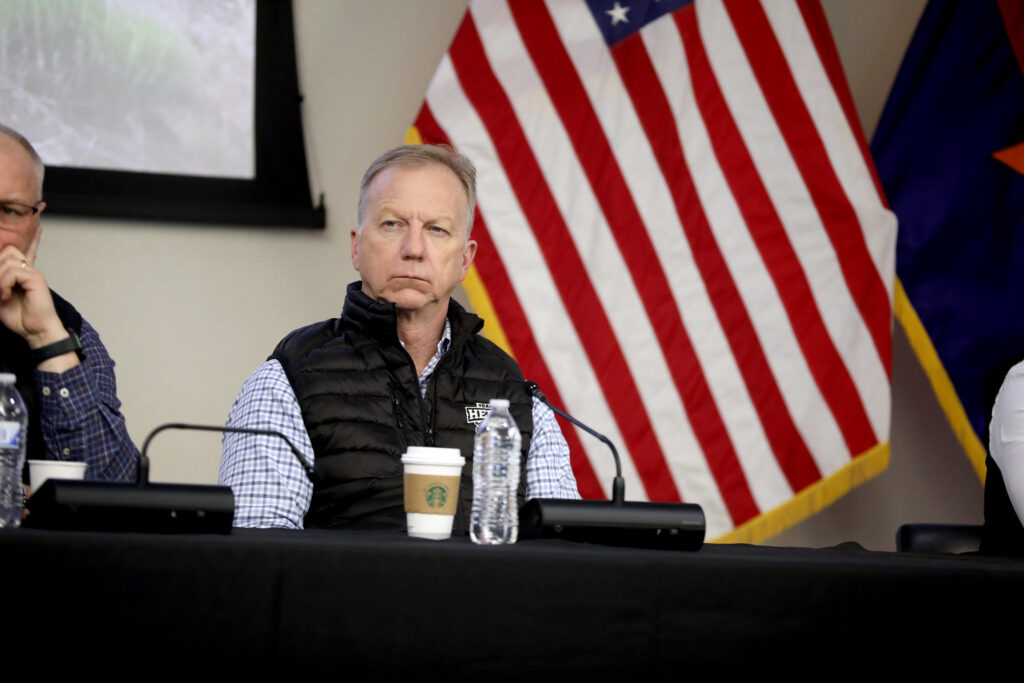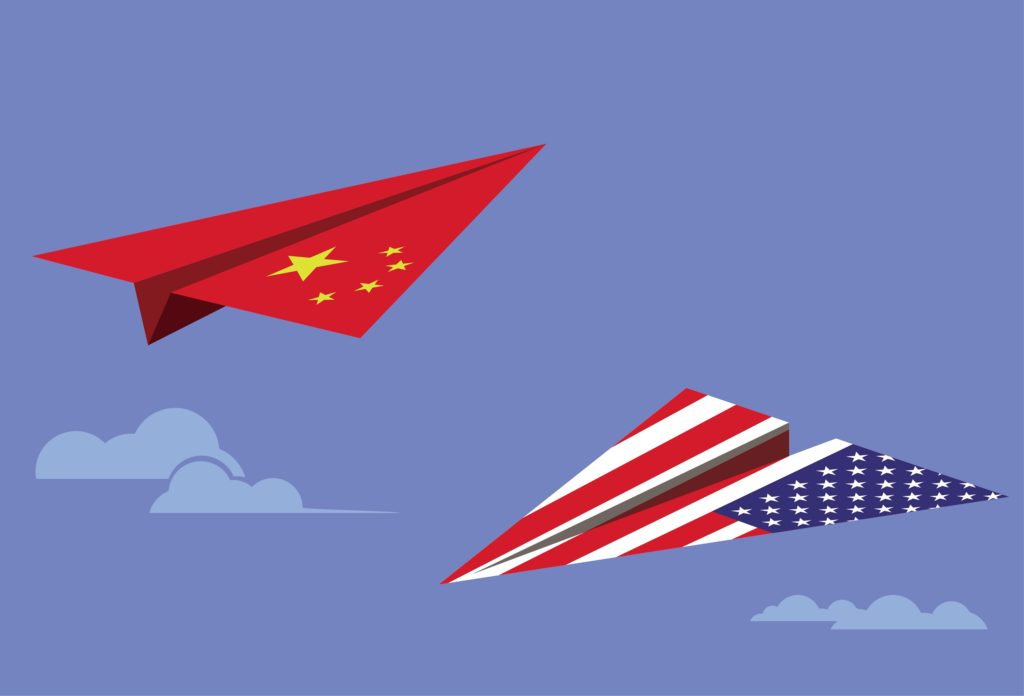On December 11, 2023, the Hudson Institute held an event regarding the threat of Chinese intelligence operations against the United States. Furthermore, this event is part of a series that the Hudson Institute is hosting on the House Permanent Select Committee on Intelligence (HPSCI), titled “Beyond the SCIF.” The goal of this event is to analyze how China increasingly threatens the U.S. through intelligence activities which seek to influence lawmakers and public opinion to make them more favorable to China. Thus, the need arises for the U.S. to protect itself against China through various means.
Representative Mike Waltz (FL-6), a member of HPSCI moderated the panel, which included Hudson Institute senior fellows John Lee and Miles Yu, and Craig Singleton, a senior fellow at the Foundation for Defense of Democracies.
Rep. Waltz directed the first question towards John Lee, a native Australian, which inquired on rewinding the political situation in Australia and its potential solutions. Dr. Lee responded that mainland Chinese-backed organizations have made great influences on Chinese communities in Australia yet, “there was a lot of complacency that it doesn’t really matter, that there weren’t that many consequences to it.” In order to counter this threat, Australia did pass legislation outlawing certain forms of covert interference, but Dr. Lee emphasized what Chinese intelligence operators are doing is not “technically illegal.” In order to bring the issue to light, dependence on responsible journalists was important, as they were able to uncover covert Chinese activity in the country. To solve the issue, Australia could not utilize only the law, as the solution had to be both national and antisocial. In 2022, the Labor Opposition party in Australia “had to buy into taking on covert influence…and warfare,” as the issue was already in the national consciousness of the Australian people, Dr. Lee elaborated. When news stories on Chinese intelligence operations broke out in Australia, the government was not afraid to stand up to these threats.
Rep. Waltz then turned towards Miles Yu and inquired after the differences between how the U.S. and the Chinese Communist Party (CCP) classifies and defines espionage, as Rep. Waltz himself sees them as very different. Dr. Yu said that the main point of distinction is that the U.S. thinks that people are all created equal, while the Chinese regime is rooted in a Marxist-Leninist communist party. China, like all countries, have traditional “cloak and dagger” specialists, that is, specially trained intelligence operators. However, every single person who is sent by the Chinese government overseas carries a certain amount of information gathering role, which is different from the United States’ traditional way of conducting intelligence. Thus, it is very hard to make the distinction for China, as “everyone who is sent [to the U.S.] by the CCP carries some type of purpose beyond their professionally designated job description.” Rep. Waltz then asked Dr. Yu how the U.S. should deal with this issue, to which he responded that the U.S. must have higher security background checks on Chinese nationals coming across its borders. Later in the discussion, Dr. Yu noted that some Chinese nationals do travel to the U.S. solely for business purposes, but that the CCP reportedly approaches and asks them to conduct intelligence collecting. The challenge and goal for the U.S., as Dr. Yu puts it, is how the U.S. can “encourage disclosure when this happens.”
In answering a question on how the U.S. can influence Chinese populations’ perspective of their government, Dr. Yu reflected on how the U.S. should start communicating with dissident groups in China to influence the power of the Chinese people. After all, the Chinese government and the people are separate entities, Dr. Yu highlights. Craig Singleton then added onto Dr. Yu’s comments with the remark that Chinese President Xi Jinping is “scared of his own people,” which, Mr. Singleton elaborates, explains why President Xi is so focused on ideological indoctrination.
On the interesting topic of political narratives, Dr. Lee explained that current major narratives focus on how the CCP’s rise is strong while the U.S. is “weak and indecisive.” When U.S. President Joe Biden referred to President Xi as a dictator, President Xi was not hurt; what would hurt him is calling out President Xi as a corrupt and incompetent leader. Furthermore, what would truly hurt China is if it is exposed to be “corrupt and incompetent.” Dr. Yu then highlighted four misconceptions which he believes exist within this current narrative. Firstly, the reason why China hypes up the ‘U.S. vs. China’ narrative is to hide the fact that “it is really about China versus the World.” Secondly, U.S.-China relations are frozen, but the U.S. is “egoistic” in believing that they are the sole entity responsible for these tense relations. In fact, every time the relations are bad is actually because of Chinese legislation, Dr. Yu says. Thirdly, the narrative that CCP engagement with the rest of the world is a win-win situation is false. Finally, Dr. Yu added that the CCP will never accept the fact that they are losing, which is why President Xi paints the current U.S.-China relations as an epic battle of “if you die, I win.”
Rep. Waltz then pivoted to ask Lee how Australia defends itself from the CCP’s weaponization of the word “race” and Chinese claims that any counter intelligence operations against China are xenophobic. Dr. Lee emphasized that these Chinese claims are in fact the most difficult thing Australia has had to deal with in countering intelligence. The CCP is “successful in propagating the idea that they are the Chinese people,” which Dr. Lee mainly links to the fact that a lot of Chinese-Australians consume mainland Chinese content. While this content is not necessarily produced by the CCP, it is still filtered through government censors. Thus, the more Chinese-Australians engage within Chinese circles–such as WeChat–the more their views align with the CCP. Conversely, the more they engage with Australian institutions, the better they speak English and the more they disagree with the CCP. Therefore, Dr. Lee concludes, achieving community interactions will “solve the problem itself,” as outreach to Chinese communities will naturally mitigate the issues of the weaponization of racial ideology.
When asked about alliances with other nations in the East Asian region, Mr. Singleton responded that China has tried to corrupt alliances between countries. President Xi “wants to present the U.S. as an unreliable partner,” so the value of relationships for the U.S. is to “reaffirm the strength of democracy,” to show that the U.S. is still strong.
Finally, each of the three panelists shared key takeaways they wanted the audience to walk away with. Firstly, Dr. Lee said that the best defense is for the American population to understand the CCP so “they will make decisions independent of CCP influence.” Dr. Yu then provided a three-part takeaway: 1) the U.S. must have its own narrative, as the intelligence problem is a fight over narratives, since China is spreading a false narrative that democracy is weak; 2) the U.S. must study the weaknesses and vulnerabilities of the Chinese system, with one such being that the CCP is paranoid of their own people; and 3) the U.S. must have a boost in morale in order to win against China. Finally, Mr. Singleton left off with the idea that the real focus should be on both defense and offense. The U.S. has just started on defense, so now they have to focus also on offense; in other words, how to “systematically attack the weak points of the CCP” and reduce the overreliance of the world on China. There are many things that the U.S. “can do to exacerbate their problems so that they don’t boomerang back on us,” Mr. Singleton points out.




